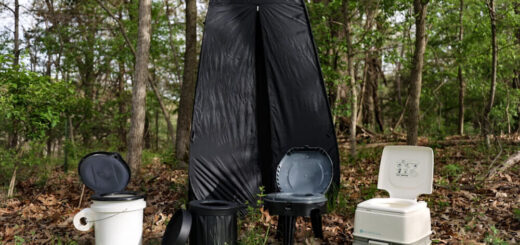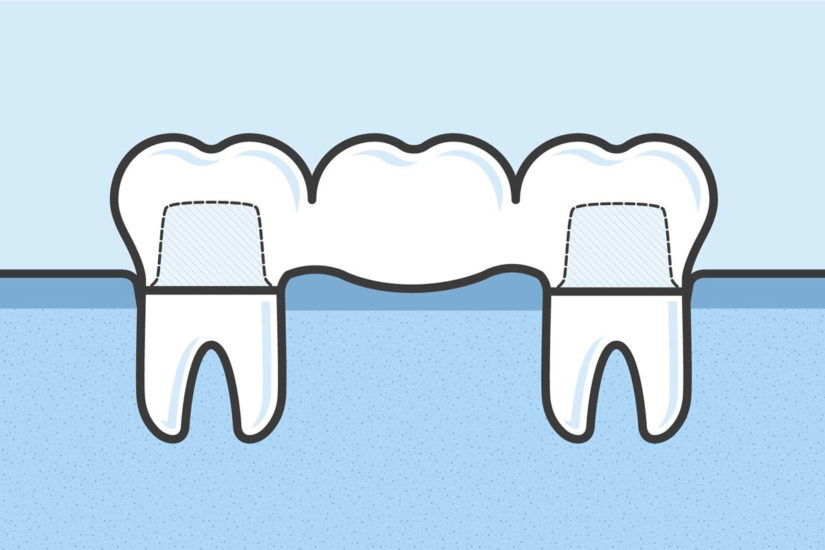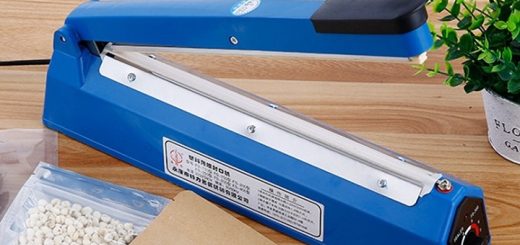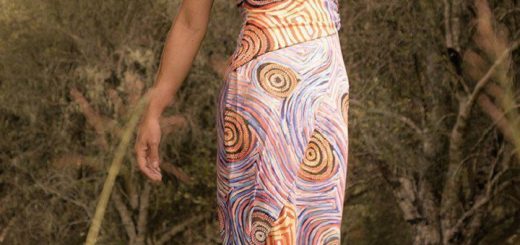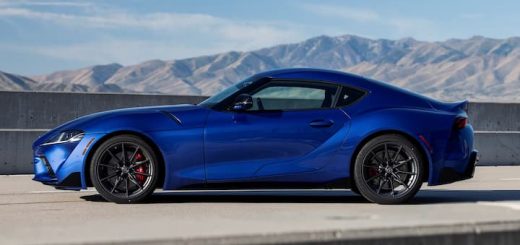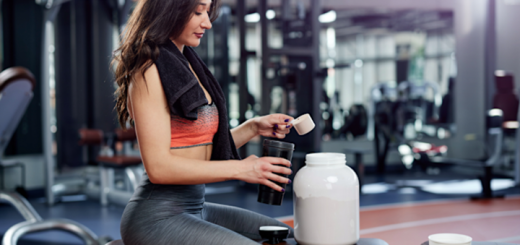The Essential Fishing Gear for Beginners
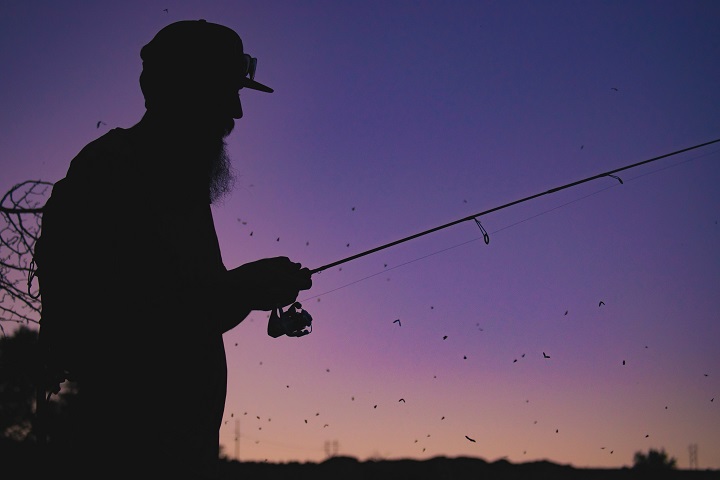
A fishing getaway, even a short one, can be great for your mental state, especially if you have a busy schedule. Sitting by the bank, surrounded by the calmness of water and leaving your worries behind is surely relaxing. And then, there’s also the added excitement when a fish finally pulls on the line. Meditation and sport – what is there not to love about fishing?
Well, some beginner fishermen feel overwhelmed by the vast market of fishing gear and have trouble making their mind up about what items they really need. If you too are struggling with this, here’s a quick breakdown of the must-have equipment for fishing when you’re a beginner.
Basic Fishing Gear for Beginners
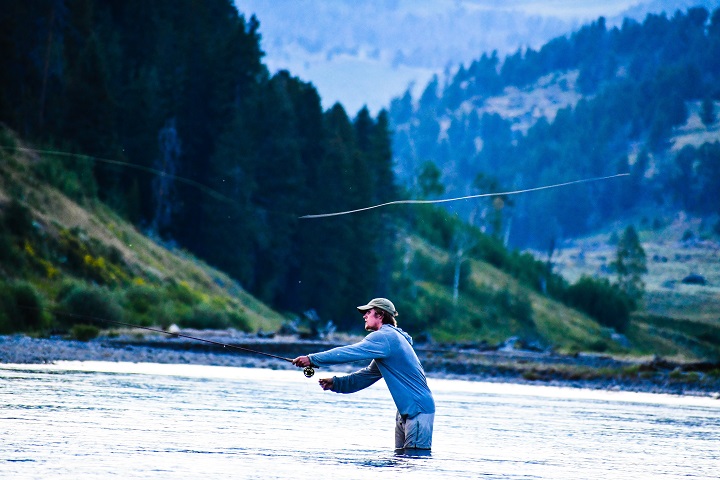
The bare minimum of fishing equipment consists of a fishing rod, a fishing line and a hook with lures, of course. However, you need to have a certain level of experience to be able to easily catch fish with this scarce gear. So, better to start off with a set that will make your fishing trip more successful so you won’t be faced with disappointment early-on.
1) Fishing Rod
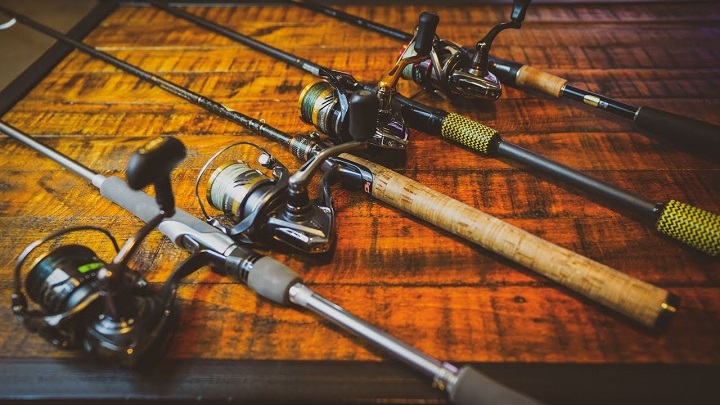
A combination of a fishing rod and a wheel makes perfect sense when it comes to beginners. An adult can choose a fishing rod that sits comfortably in one hand. Best to start with a spinning rod, and then upgrade to overhead, baitcast, travel or saltwater rods based on the type of fishing you aim to do.
2) Fishing Reel
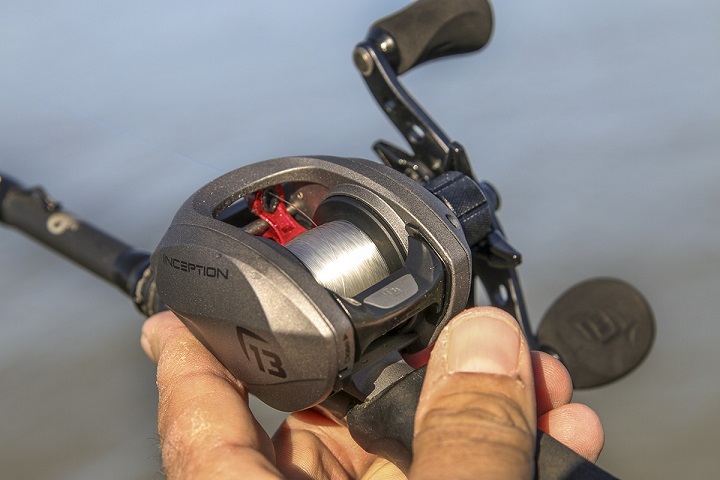
If your rod is not fitted with a fishing reel than the most basic you can add to it is a spinning reel. You want to look into the ball bearing, drag pressure, braid capacity and weight when shopping. As much as this depends on the fish you go for, it’s advisable to start with a small standard reel.
3) Fishing Line
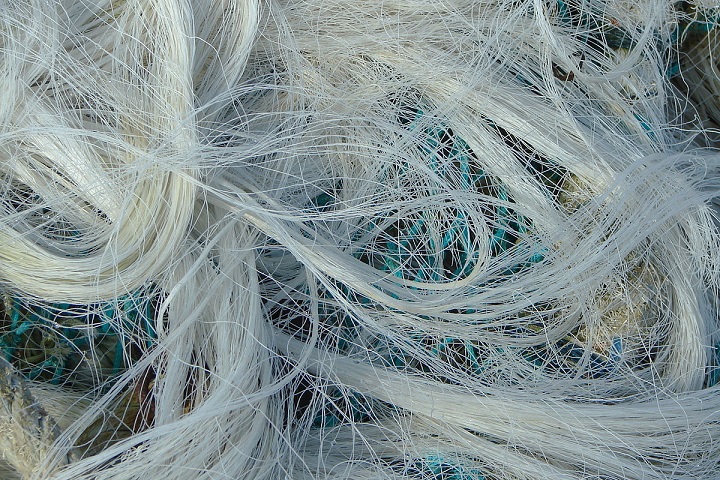
It simply doesn’t matter how experienced you are – at one point your line will break or tangle up. And these are the moments during a fishing trip when you have to cut the line. So, when you are shopping at a local or online fishing tackle shop, make sure you buy plenty of line. Go for monofilament line that’s tough, resistant to abrasions and has superior knot strength. And always have some extra. You will need it.
4) Fishing Hooks
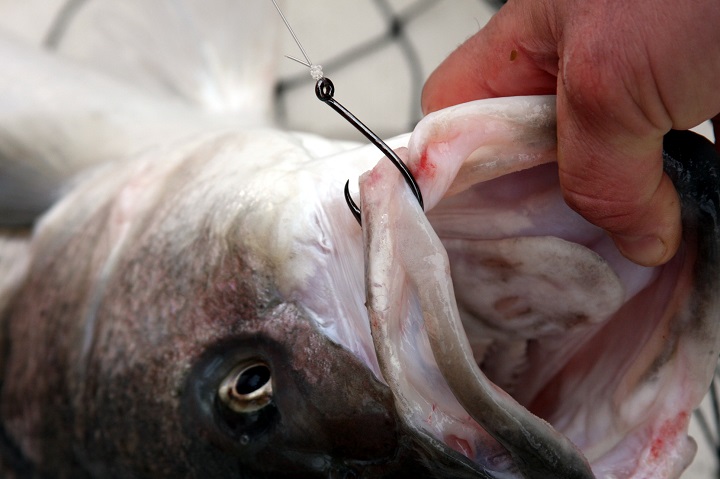
Hooks are an item that can cause a lot of confusion. The sheer range of hooks available on the market is off-putting to a novice. Don’t get too much involved with it. Just get hooks with a size between six and ten – they are great for small fish. And go for multiple hooks of multiple sizes that will allow you to experiment. That is the only way to find out what is most useful to you.
Once you cover the basics, you can always upgrade to more elaborate and game-specific hooks.
5) Fishing Weights
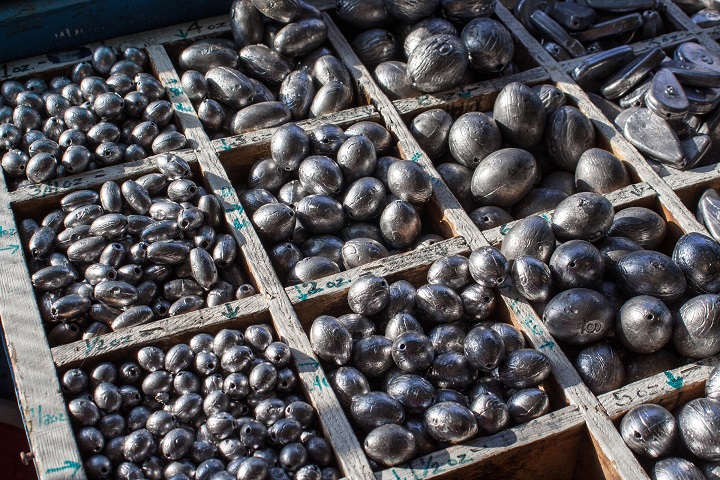
The hooks and your bobber might keep the line in relatively shallow waters. To overcome this you will need to include small BB size weights that can clip to your line. Sometimes weights come in a combo pack along with hooks or bobbers. This will be quite handy for a beginner, so when in doubt go for a set. They are probably combined for a rig that has stood the test of time.
6) A Bobber
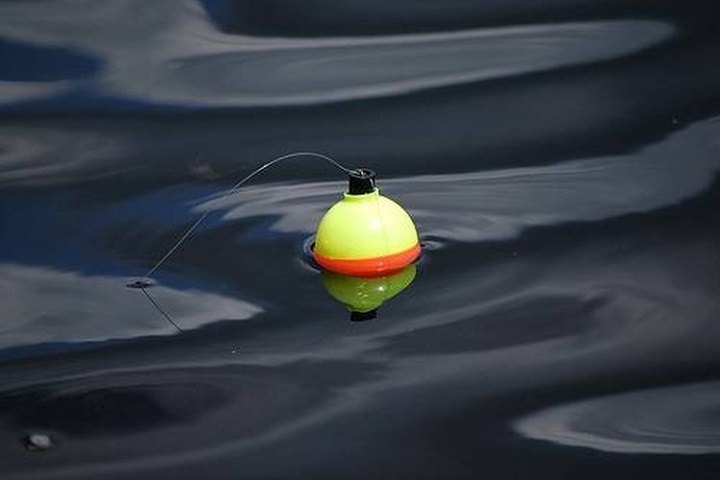
Plastic or a quart bobber is a standard piece of fishing equipment. It serves to let you know where your hooks are and if the fish are biting. Nowadays, there are many floaters that can simply clip to the line. These are perfect to start with. Once you get the hang of it, you can go for slip bobbers. They allow you to slide them up and down the line. It will take more time to rig your rod but it will also get your hooks into deeper water and to bigger fish.
7) A Bait
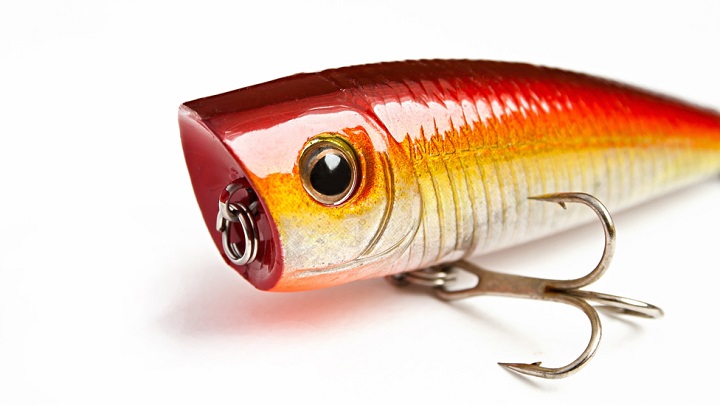
They say that fish are not that smart. But they are not dumb enough either to bite directly into your hook either. The bait can be the most important piece for catching fish. Practical wisdom is to use live baits, especially for saltwater fishing. So, time to check your backyard for worms. You may also be able to successfully fish with artificial lures (simple plastic worms). Those with long tails are probably the most simple and easy to use.
8) Basic Cutting Tools
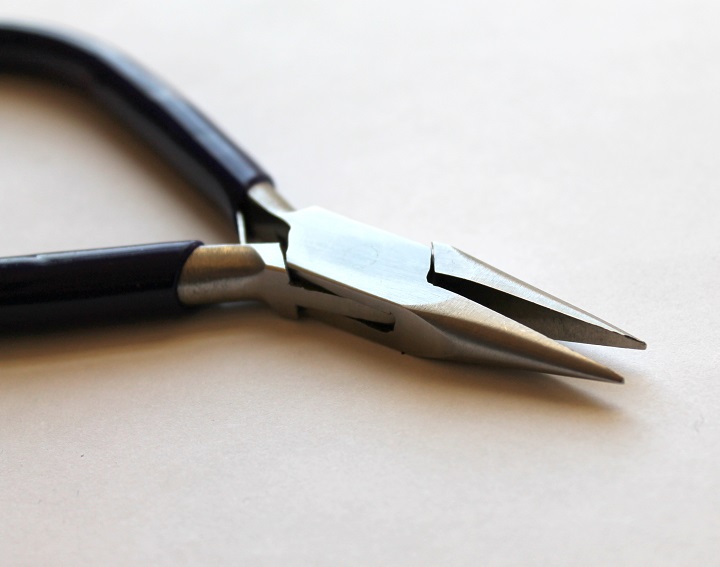
Technically, you can use whatever comes handy to cut your line. However, others that have done this before recommend two specific pocket tools: a pair of clippers and needle-nose pliers. Consider adding them to your kit to cut your cutting time in half. The pliers are helpful in taking a hook out of fish’s mouth and you can use them to tie knots.
9) Tackle Box
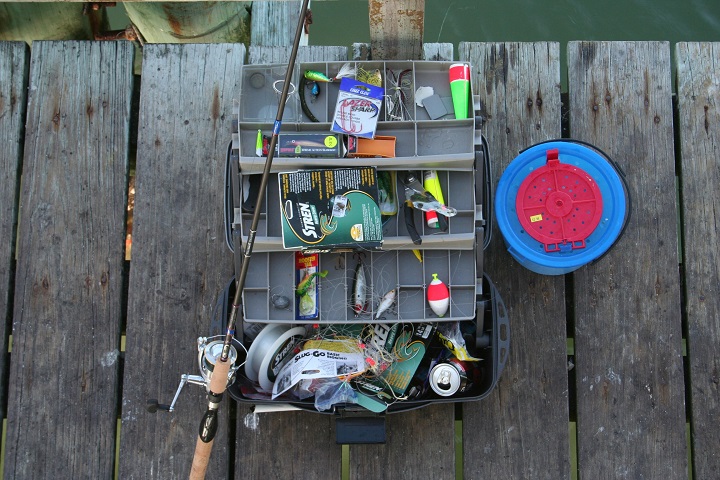
While not regarded as essential equipment for fishing, a tackle box is a great way to stay organised. You might want to spend some time fishing before you are aware of the kind of box you need. In the meantime, you can use any bucket you can find. However, if fishing seems like it can grow to become a long term interest of yours, then you have to invest in a proper tackle box. It is useful to know each piece has its own place during fishing. And it is great when you revisit fishing after a pause for work – looking for those small bits and pieces is a drag.
10) First Aid Kit
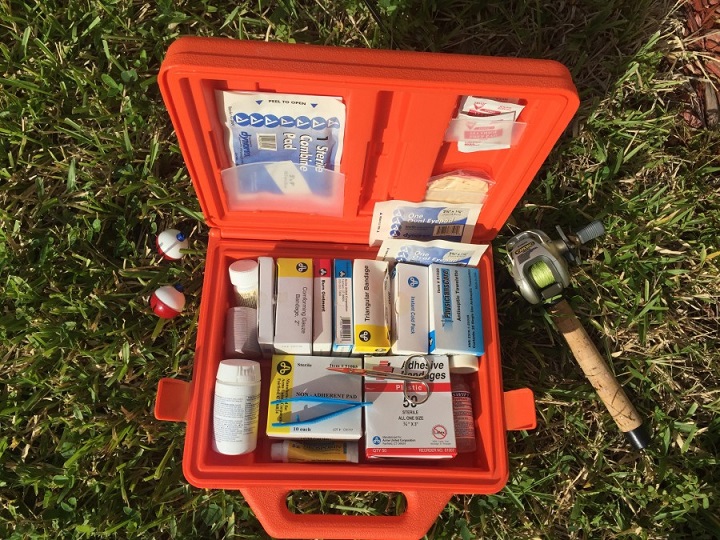
Well, you don’t need a full-sized emergency kit. But having a small first aid kit on hand can be indispensable during a fishing trip ). What you need to cover are some small finger wounds so include band aids, bandages, waterproof medical tape and Neosporin.
And this concludes the list of essentials that are crucial for a great fishing start. Everything can be mastered with the right kind of preparation and attitude.
